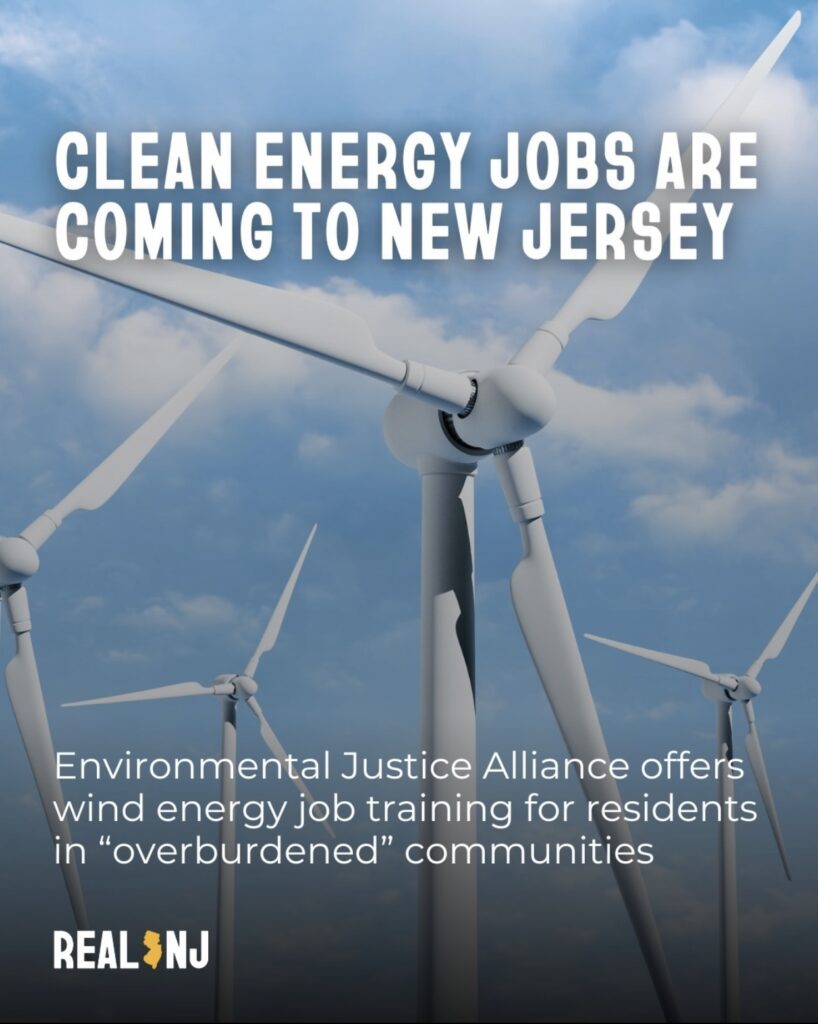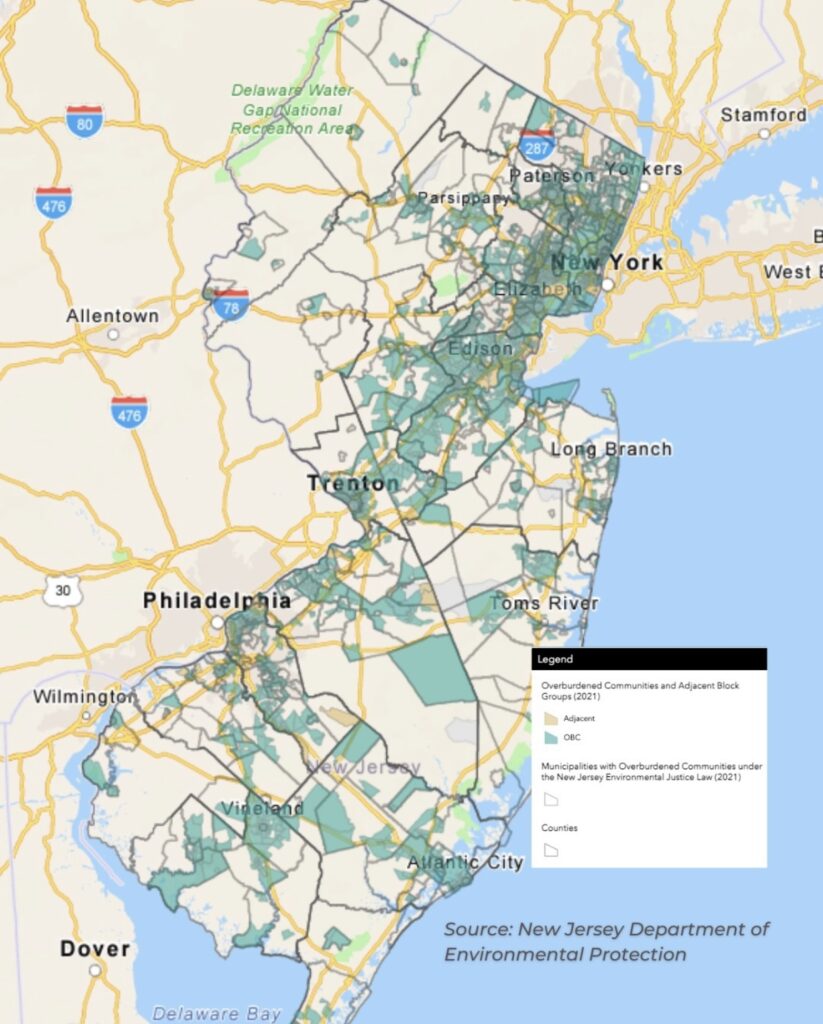This article was originally published by Real NJ on November 1, 2023.

The New Jersey Environmental Justice Alliance @njejalliance is teaming up with Soulful Synergy @_soulfulsynergy_ and the Newark Workforce Development Board to bring offshore wind workforce development training programs to New Jersey residents in the greater Newark area, and other overburdened communities in the state.
New Jersey is expected to rely more on offshore wind power for its energy needs in the coming years. Governor Murphy set clean energy milestones for the state with the goals of reaching 100% clean energy by 2050, and increasing New Jersey’s previous offshore wind energy goal by nearly 50 percent to 11,000 megawatts (MW) by 2040.
Halimah Shabazz with NJEJA says overburdened communities don’t have the same protection from climate change as other communities leaving them vulnerable to “disparities in experiencing more extreme weather events like flooding or extreme heat because of things like low tree cover…”
“I would say this training is a stepping stool. Sometimes, people don’t go for certain types of jobs especially when they see requirements like OSHA 30, which isn’t a free training. So we are providing this training for free to our participants and they are gaining a stipend for their time and commitment at the end of the program,” said Shabazz.
With increased demand for wind power, more clean energy jobs are also coming to New Jersey over the next 3-5 years, says Shabazz. NJEJA wants those from overburdened communities to know about what skills are required so that they can apply for those jobs.
The goal of the training program is to make sure the communities most impacted by climate change and pollution are able to benefit from New Jersey’s transition to clean energy solutions, by “setting people up to be able to get other construction jobs or even learning or putting themselves in a great position to have a job that requires specific skills,” says Shabazz.
In the six-week training program development training, participants can expect to learn where to look and apply for the jobs, resume help, hands-on construction skills training, site safety, which is really important on a construction site. They are also going to get OSHA 30 certification, which is one of the concrete things that you need when you’re going into a construction job, and learning about the fundamentals of offshore wind structures.
“One of the critical pieces for this training is the Environmental Justice 101 training. So if you’ve never heard of “overburdened”, if you’ve never heard of “environmental justice”, it gives people an opportunity to learn about what, what these things are, how they’re impacted, and then seeing how gaining this training and connecting it with environmental justice is actually extremely beneficial for them,” says Shabazz.
The kinds of jobs that will be available will vary from installation and commissioning turbine manufacturing, operations, maintenance, project management and development, and balance of plant manufacturing.
NJEJA plans to hold 3 trainings with 20 participants each for a total of 80 participants trained. Participants must be from a designated overburdened community, who typically wouldn’t have access to these jobs, as determined by the New Jersey Department of Environmental Protection.

Participants must be 18 years of age and older. You must first attend an information session in order to have your application for the training program considered. Residents interested in the training can follow @njeja to learn more.


Comments on NEPA Rollbacks Affecting EJ Communities